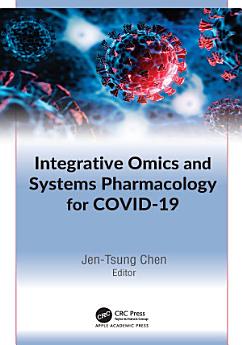Integrative Omics and Systems Pharmacology for COVID-19
About this ebook
This book introduces cutting-edge ways for drug discovery and pharmacological approaches to develop treatments and medications for COVID-19 based on modern technologies that highlight the applications of integrated multiple omics and advanced bioinformatics tools. It also lists a range of promising bioactive compounds derived from traditional herbal medicines and natural products. The book explains the expanding strategy to integrate a series of approaches including genomics, metagenomics, transcriptomics, proteomics, metabolomics, epigenomics, and bioinformatics to organize a system of multiple omics. International and reliable multi-omics databases, bioinformatics tools, and software are also comprehensively summarized and thus can be easily accessed by researchers. Artificial intelligence (AI) as a revolutionary tool in the fields of drug discovery, vaccine development, and computational medicine for COVID-19 is also addressed. The coordination and integration of AI tools within the system of multiple omics and the limitations and future directions of AI-assisted strategies for COVID-19-related research are comprehensively discussed as well.
About the author
Jen-Tsung Chen, PhD, is a Professor of Cell Biology at the National University of Kaohsiung in Taiwan, where he teaches genomics, proteomics, plant physiology, and plant biotechnology. Dr. Chen’s research interests include bioactive compounds, chromatography techniques, plant molecular biology, plant biotechnology, bioinformatics, and systems pharmacology. He is an active editor of academic books and journals in an effort to advance the exploration of multidisciplinary knowledge involving plant physiology, plant biotechnology, nanotechnology, ethnopharmacology, systems biology, and drug discovery. He serves as an editorial board member and a guest editor for several reputed journals. Dr. Chen has published books in collaboration with international publishers on diverse topics such as drug discovery, herbal medicine, medicinal biotechnology, nanotechnology, bioengineering, plant functional genomics, plant speed breeding, CRISPR-based plant genome editing, and artificial intelligence. He has been included in the list of the World’s Top 2% Scientists 2023 by Stanford University.







